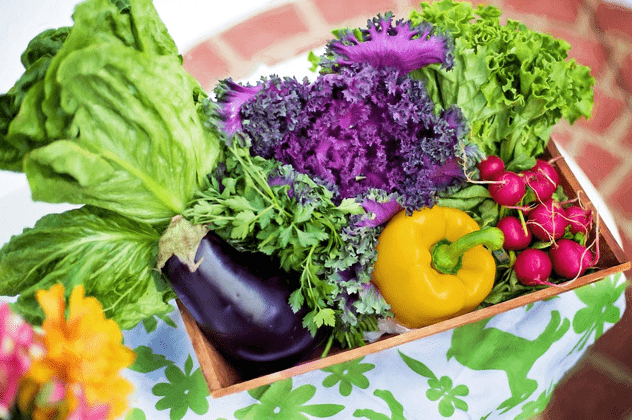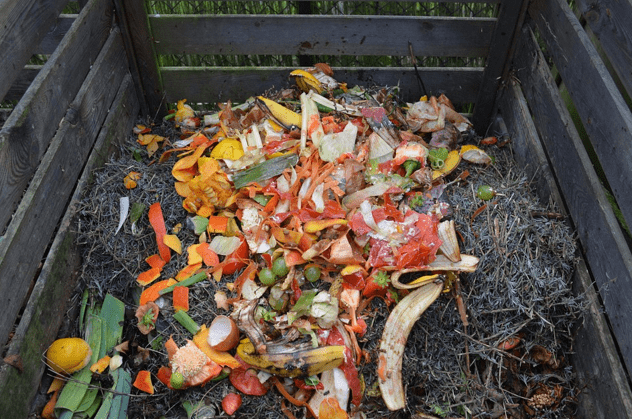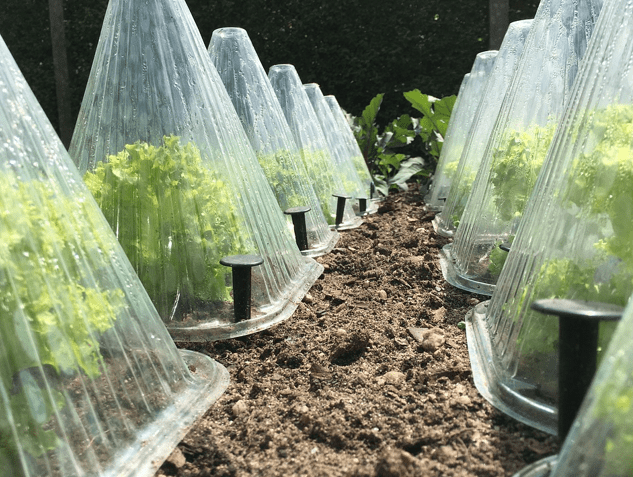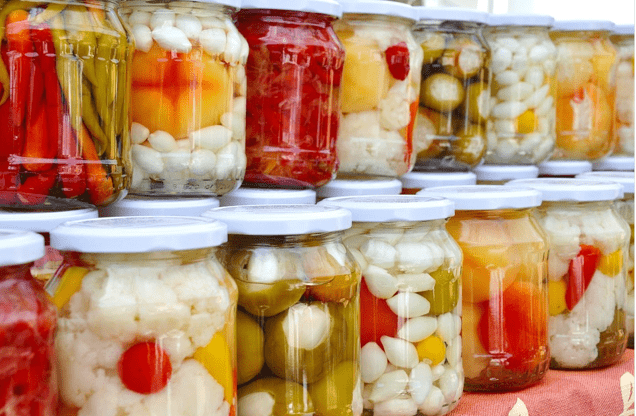Starting an Organic Garden? Here Are the Top 8 Organic Gardening Tips
There is a fresh movement nowdays to grow organic. Besides the pride of serving organically grown fruits and vegetables that you grew yourself from the seed up, there are flavor and health benefits that come with eating food from organic plants.
Whether you’re growing cucumbers from organic garden seeds to make your own pickles or growing strawberries for your organic gardening, it’s smart beyond just saving money. Organic gardening can be an incredibly rewarding hobby that gives you a sense of accomplishment.



Organic Gardening Tips
According to OrganicFacts.net, some of the health benefits of sustainable gardening and organically grown food include:
- Antioxidants tend to have more of an impact from organic gardening.
- The organic gardener doesn’t use harmful pesticides that infiltrate the food.
- Organic plants aren’t subject to the same types of antibiotics that can be detrimental to immune systems.
- Organic vegetable gardening doesn’t use genetically modified seeds, which may have harmful effects in the future.
- Many people think organic gardening produces better tasting food, because it is locally produced, has no preservatives, and doesn’t need to be harvested early.
But Organic Food at the Store Is So Expensive!
Most of us would love to buy organic, but it’s usually more expensive than other produce in the grocery store.
That’s why learning gardening tips to start your own organic garden can give you the best of both worlds. Organic gardening supplies do not cost much more than non-organic supplies. So when you buy organic garden seeds to start your own organic garden, it’s much more affordable than store-bought foods.
In this article, we will review the top eight best gardening tips for organic gardening and take you through step-by-step on how to get started.
Even if you’ve never been an organic gardener or grown anything before, by the end of the article, you’ll have enough organic gardening tips to grow like a pro.
See Also: Top Organic Farming Techniques
Learning How to Grow Organic | What Does Organically Grown Mean?
You may be wondering what the difference is between organic vegetable gardening and just growing vegetables? Centuries ago, there used to be no difference, but with the introduction of chemicals and genetically modified seeds, organic gardening has taken on its own meaning.
When you grow organic, it means you do so without the use of synthetic or chemical means of pest control or fertilizers. Organic gardening supplies are all natural, so it means you’re producing food naturally without man-made chemicals being involved.
An organic garden also uses organic garden seeds, without any genetically modified organisms (GMOs), which are seeds that may be created using methods such as gene slicing or gene modification.
According to a study by The Journal of Alternative and Complementary Medicine, organic plants contained significantly more vitamin C, iron, magnesium, and phosphorus and significantly less nitrates than conventional crops that were not organically grown.
Organic Gardening Tips #1 | Prepare Your Sustainable Gardening Space
The first step when you are wondering how to start an organic garden is deciding what space you have and getting it prepared. You don’t have to have an expansive backyard to start organic gardening, you can start organic garden seeds in a just a small planter or 4’ x 4’ box.
If this is your first time trying organic vegetable gardening, then one of the best gardening tips is to start small. Once you get a growing season under your belt, it’s easy to expand if you want to.
Some of the options you have for your organic garden space are:
Your Yard
You can section off a portion of your yard for organic gardening, but you may need to hoe and dig up the soil a bit in order to get it prepared for proper growing.
Small Planters
Small planters of either clay or plastic can be a great solution to grow organic if you live in an apartment or have limited space. They can also make a nice display around a patio.
Larger Box Planters
Larger box planters made of wood or other natural materials can be raised to make them easier to access. They give you a nice “middle of the road” space option that’s easy to expand as an organic gardener.
There are a few thing you’ll need to do to properly prepare both the organic garden container and the soil. These include:
- Ensure containers have proper drainage
- Place containers where you want them before filling them with soil
- Soil needs to have nutrients for proper growing
- Composting is a key fertilizer (see tip #2)
- Be sure containers are large enough for what you intend to plant
- Ensure they are in a location that will give them enough sun
- Protect a yard-based organic garden from rabbits or pests with fencing
Don’t Miss: Organic Farming Definition, Advantages, and Disadvantages
All-in-One Change Management Tools
Top Rated Toolkit for Change Managers.
Get Your Change Management Tool Today...
Organic Gardening Tips #2 | Making Compost
Compost is made up of decomposed organic matter. That description might not sound very appealing, but actually compost is a key ingredient for healthy organic gardening.
Compost is like a super boost to the soil. It is rich in the nutrients that organic plants need. It can also have the dual benefit of assisting your sustainable gardening and reducing your daily household waste.



Sustainable Gardening – Making Compost
You can either buy compost for organic gardening or make your own. It’s not difficult to make a compost pile; you just need to give it time to go from banana peels, coffee grounds, and leaves to usable compost.
It can take anywhere from 20 days (using a more labor intensive “hot turn” method) to 3-12 months to make usable compost for your organic garden seeds.
Gardening Tips for Making Compost:
- Use a mix of about 3 parts “brown” materials to 1 part “green” materials
- For brown, use things like leaves, straw, grass clippings, saw dust, pine needles
- For green, use things like coffee grounds, fruit and vegetable waste, egg shells
- Don’t use meats, greasy foods, pet droppings
- Turn or stir every week or two to help accelerate the process
- You can use a compost pile, bin, or special rotary machine for compost
- Keep the pile moist and well aerated
Organic Gardening Tips #3 | Choosing your Organic Garden Seeds
When it comes time to look for your organic gardening supplies, one of the enjoyable activities is picking out the organic plants you plan to grow. They all look great on the organic garden seeds package, but remember not to overextend yourself.
It’s best to start with just 2-3 different organic plants if you’re first starting out. That will allow you to learn the differences in how each plant grows and find out which need more or less time and attention.
For example, cucumbers are fairly easy to grow and have a shorter growing season than a plant like cauliflower, which has a longer growing season and doesn’t like a too hot or too cold temperature.
Another important consideration when you grow organic is what you and your family enjoy eating. It doesn’t make sense to grow organic plants that you wouldn’t normally buy when you’re shopping at grocery store.
What Does the Zone Mean on Organic Garden Seeds?
When you’re shopping for seeds and other organic gardening supplies, you’ll likely see a “Zone” metioned on the package. This refers to the USDA Plant Hardiness Zone Map, which is the standard that an organic gardener can use to determine which climate zones plants are most likely to grow well in.
Related: What Is Organic Food | All You Need to Know (Definition, Benefits, & Facts)
Organic Gardening Tips #4 | Invite Helpful Creatures Into Your Organic Garden
With organic gardening, one of the big things you’re avoiding is the use of pesticides to get rid of unwanted insects. So, what do you do when your plants are under attack by pests?
One of the best gardening tips for anyone interested in sustainable gardening is to invite in those creatures that will help get rid of pests and provide a benefit to your organic vegetable gardening.
Some of the helpful creatures you’ll want to reach out to when you grow organic are:
- Frogs
- Toads
- Lizards
- Birds
- Bats
- Ladybugs
So, how do you invite them to hang out in your organic garden? Leave a small water source, and you can also grow plants with small blossoms like dill or cucumbers. Nets can also be helpful to attract these natural predators.
Organic Gardening Tips #5 | Protect Organic Plants from Frost
Frost is something that every organic gardener fears. When a late spring frost comes, it can seriously damage or kill your organic plants, putting a serious damper on your sustainable gardening.
What happens when organic plants are subject to freezing (32F/0C) temperatures?
The water inside the plant freezes, which can cause the cells to burst and result in irreparable damage to the plant. Some survive, but many don’t.



Organic Gardening – Protect from Frost
You can’t stop the cold weather, but you can do some things to protect your organic gardening crops from frost damage. Here are a few gardening tips for frost protection:
- Bring container planted organic plants inside if possible
- Water plants before a frost to help give them an extra insulating layer
- Cover plants with a frost protection cloth, sheet or other fabric cover
- Spread compost, straw, or mulch over the organic garden
- Cover small plants with a glass jar or plastic bucket or used milk jug
- Remove the covering when the sun comes out so they don’t overheat
Popular Article: Does Garcinia Cambogia Work? Is it Safe?
Two of the most important, life-giving ingredients for organic vegetable gardening are sun and water. The amount that each plant needs can vary widely.
When you’re shopping for organic gardening supplies, it’s important to carefully read the details of what any particular plant needs when it comes to sun and water.
Sun is vital for the proper photosynthesis of all organic plants, but some plants need full sun, while others thrive when they have shade as well.
And while all plants need water, if you water too much when you grow organic, it can cause weakened plants and make them more susceptible to disease or predatory bugs.
Some Great Organic Gardening Tips from Good Housekeeping for Watering
- It’s better to water in the morning to avoid evaporation
- Water the roots, rather than the greenery
- A total of about one inch of water per week (including rain) is a good level
- Watering generously once or twice per week encourages stronger plants
- Use water near air temperature
- Collected rain water is a great water source when you grow organic
Organic Gardening Tips #7 | Effective Organic Gardening Weeding
Keeping weeds out of your organically grown crops is important. According to the Weed Science Society of America (WSSA), without weed control, about half of the U.S. corn and soybean yields would be gone, at a cost of $43 billion annually.
When you’re an organic gardener, using chemical weed killers is a big no-no. After all, you started organic gardening to bring healthy, chemical-free food to your table. Weeding typically needs to be done by hand.
If you plant smart, however, the task can be a bit easier.
One of the great weed-related gardening tips is to keep your plants fairly close when planting an organically grown crop. This will help to discourage weed growth in the first place.
Using a natural mulch with your organic gardening is another way to help keep those weeds at bay so you have less to pull.
Natural Weed Killers | Weed Gardening Tips
If you want to try a few natural forms of weed control that don’t contain harsh chemicals, here are a few ideas you can try in your sustainable gardening:
- Vinegar
- Rock salt
- Boiling water
- Make your own weed killer
- Commercial organic weed killers
Organic Gardening Tips #8 | Preserve Your Organically Grown Harvest
The last of our gardening tips for organic gardening may seem obvious, but it’s important if you want to enjoy the fruits (and vegetables) of your sustainable gardening labors.
You may be surprised when all your organically grown veggies are ready to pick at once, but not sure how to preserve them so they don’t go bad before you have a chance to enjoy them.
This is one of the most important organic gardening tips – how to save what you’ve grown through organic gardening for later.



Organic Plants – Preserve Your Harvest
Preserving foods is something our grandparents knew like the back of their hand. Many of them passed on their gardening tips, but over time, canning and pickling became something of a lost art.
But these are still excellent ways to enjoy your organic gardening harvest for months or years after you’ve grown it. Below are some organic gardening tips for safely storing your harvest for later:
Pickling
You can pickle more than just cucumbers, and you can use this method of preservation for multiple other types of organic vegetable gardening.
It’s a fairly easy method that includes storing the food in a salt and vinegar solution, with herbs added if you like. Pickled vegetables can typically keep up to 6 months refrigerated, or stored in a dark cool place, up to 2 months.
Canning
Canning is the most traditional way to store fruits and vegetables, or jams, sauces, and salsas, for up to a year or longer. But you need to make sure you do it right; otherwise, you can end up at risk for botulism. FoodSafety.gov has some excellent organic gardening tips related to proper home canning.
Dehydrating
Another one of the great gardening tips for preservation of your harvest is using a dehydrator to dry and vacuum seal your food. If done properly, fruits and vegetables can keep for up to a year. Cooking in boiling water can rehydrate when ready to eat.
Freezing
Freezing offers another fairly low-cost and easy way to make the most of your organic vegetable gardening. One of the organic gardening tips to preserve the flavor is to blanch the vegetables in boiling water for 2-5 minutes, then plunge them in cold before drying off and freezing in an air-tight container.
Vegetables can be stored in the freezer for about 18 months, possibly longer.
Read More: Plated Reviews & Cost | What You Need to Know About Plated Food Delivery
Guide for Gardening Tips on How to Start Organic Gardening | Conclusion
When it comes to organic gardening, it makes sense both for saving money and eating healthy. And when you follow a few simple organic gardening tips, it might be much easier than you think to grow organic for your own family table.
Sustainable gardening also gives you the opportunity to can or pickle some healthy gifts for family and friends.
Studies have shown that organically grown food is higher in certain nutrients; plus, you don’t have to worry about harmful chemicals from pesticides. And most people agree that homegrown fruits and veggies just taste better.
There is still plenty of time to take advantage of these gardening tips for your own organic gardening venture and enjoy some delicious home grown foods this year.
Image Sources:
- https://pixabay.com/photos/vegetables-garden-harvest-organic-790022/
- https://pixabay.com/photos/green-waste-compost-compost-bin-513609/
- https://pixabay.com/photos/endive-salad-lettuce-frost-h%C3%BCtchen-1411448/
- https://pixabay.com/photos/pickles-mixed-food-700131/
AdvisoryHQ (AHQ) Disclaimer:
Reasonable efforts have been made by AdvisoryHQ to present accurate information, however all info is presented without warranty. Review AdvisoryHQ’s Terms for details. Also review each firm’s site for the most updated data, rates and info.
Note: Firms and products, including the one(s) reviewed above, may be AdvisoryHQ's affiliates. Click to view AdvisoryHQ's advertiser disclosures.







